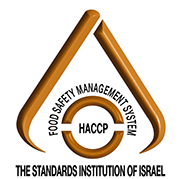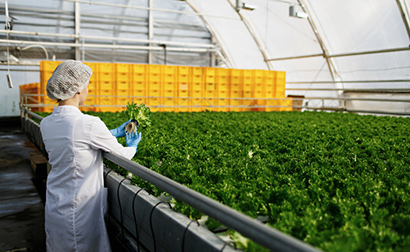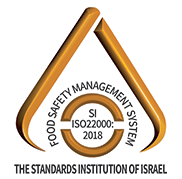
HACCP

The system is intended to identify, assess, and control significant nutritional product safety risk factors.
HACCP provides an organization with a systematic approach based on seven core food safety control principles, to identify, analyze, and characterize all possible risks in each stage of food production. The method defines the critical control points to prevent biological, chemical, physical, or allergenic contamination from the crop stage, through processing on the production line, to the final product that reaches the consumer. The method was developed in the 1960s at US Army laboratories by Pillsbury Company and the National Aeronauts and Space Administration (NASA) to meet the need for the supply of 100% safe food for the space program's astronauts. Initially, only samples of the final product were tested, but not everything could be sampled. The solution to the problem lies in analysis of all the risks in the production process until the final product is obtained.
The seven HACCP principles
The Codex Alimentarius Commission – the food code of standards, guidelines, and code of principles adopted by the Food and Agricultural Organization/World Health Organization (FAO/WHO) Food Standards Program – published the HACCP guiding principles:
- A systematic scientific risk review and description of biological, chemical, physical, or allergenic risk-prevention actions.
- Locating the critical control points (CCP)
- Establishing the critical limits for these points – beyond which the product is considered unsafe
- Establishing monitoring procedures at the control points and deciding procedures based on the monitoring results for calibrating the control in accordance with the critical limit
- Establishing corrective actions to deviations from the prescribed critical limits
- Documentation of all the actions taken in each stage of the process and control as proof that the manufacturer is in compliance with the standards and prescribed control points
- Establishing verification procedures that the system and its processes are operating properly and effectively.
HACCP requirements
Good manufacturing practice (GMP) implementation, up-to-date HACCP studies, and compliance with the applicable legal and regulatory requirements for food safety by the organization's food safety management system.
HACCP is intended for all organizations on the food chain to ensure that products are safe throughout the chain. Organizations on the food chain are farmers, raw material manufacturers, auxiliary materials and supplements manufacturers, food and beverages producers, packaging houses, storage and transportation services providers, and logistics centers. The standard is also applicable to organizations that interface with the food industry, including manufacturers of packaging, cleaning supplies and disinfectant, and food industry equipment.
The road to certification
Certification follows the successful implementation an organization's in-house food safety management system pursuant to the requirements of the standard of its food safety management procedure. To start this process, it is recommended to purchase the standard at the Standards Institution of Israel Information Center, study the requirements, and participate in appropriate training. It is also possible to consult with the quality management experts and undergo an audit by Standards Institution of Israel to check for shortcomings. At the end of the process, independent Standards Institution of Israel auditors will perform an audit that confirms that the organization's food safety management system is compatible to the specifications of the standard.
The Standards Institution of Israel – the right choice for you!
- The Standards Institution of Israel has a longstanding reputation for quality and professionalism
- Our people are among the best experts in the quality assurance field, with experience and familiarity of customers' needs
- The Standards Institution of Israel is the country's largest certification body
- The Standards Institution of Israel has accreditation from the largest certification bodies in the world
- The Standards Institution of Israel offers a range of services under one roof: certification (individual and integrated), a range of laboratory tests, and a training center
- The Standards Institution of Israel is member of international standardization committees and has cooperation agreements with top certification bodies in the world.
- The Standards Institution of Israel is a member of IQNet Association - The International Certification Network, which incorporates certification bodies from all over the world. Standards Institution of Israel customers obtain exclusive IQNet certification for free and may also obtain mutual recognition from IQNet members as a marketing tool.

